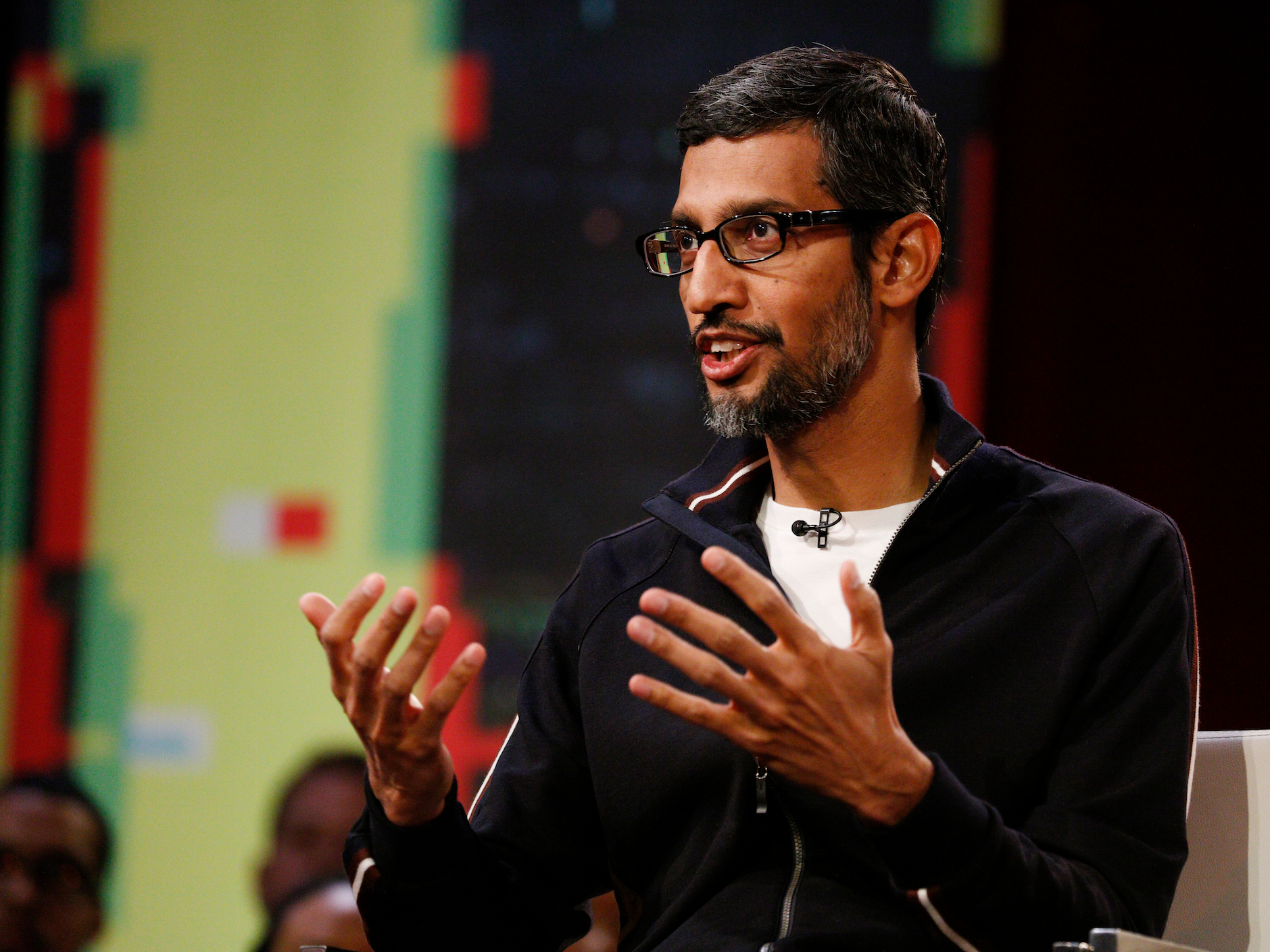- Google has dropped out of a bidding war with Amazon and other cloud computing companies for Joint Enterprise Defense Infrastructure (JEDI), a $10 billion contract from the Pentagon.
- Google chose to withdraw because the contract may conflict with its corporate values, and its principles over the ethical use of AI.
- This decision comes just months after several employees signed a petition, and even resigned, over Google’s involvement with military projects.
- The contract is winner-take-all, with Amazon seen as the frontrunner.
Google dropped out of the competition for a crucial Pentagon cloud computing contract valued at over $10 billion, the company confirms with Business Insider.
The news, which was originally reported by Bloomberg, comes on the same day that the search giant announced the shutdown of the Google+ social network, in the wake of reports of a major security lapse. It also comes just months after Google employees protested en masse over the company’s work with the United States military.
This $10 billion cloud contract, called the Joint Enterprise Defense Infrastructure (JEDI), will be awarded to build cloud services for the Department of Defense. Google says it chose not to compete for the contract because it believes this work would conflict with its corporate principles, and because it believes it may not hold all of the necessary certifications.
“While we are working to support the US government with our cloud in many areas, we are not bidding on the JEDI contract because first, we couldn’t be assured that it would align with our AI Principles and second, we determined that there were portions of the contract that were out of scope with our current government certifications,” a Google spokesperson said.
Companies competing for the contract must submit their bids by October 12. As only one company will be awarded the contract, Amazon is seen as the frontrunner. Several companies, including Oracle, IBM and Microsoft, were working together to oppose the winner-take-all approach rather than splitting the contract among multiple vendors. Google, in particular, believes it would be in the Pentagon's best interest to allow multiple clouds.
"Had the JEDI contract been open to multiple vendors, we would have submitted a compelling solution for portions of it," a spokesperson said in a statement. "Google Cloud believes that a multi-cloud approach is in the best interest of government agencies, because it allows them to choose the right cloud for the right workload."
Earlier this year, controversy emerged within Google over the company's participation in Project Maven, an effort to build artificial intelligence for the Department of Defense to analyze drone video footage, which could be used to target drone strikes.
In April, more than 4,000 Google employees signed a petition demanding that the company discontinue Project Maven and promise to never "build warfare technology." Some employees even resigned in protest.
In June, Google said it would not renew the contract once it expired, and that same month, it released a set of principles for its work in AI. According to those principles, Google will not design or deploy AI that can cause harm or injury to people, that can gather information for surveillance that "violates internationally accepted norms," or that violates international law and human rights principles.
"We will continue to pursue strategic work to help state, local and federal customers modernize their infrastructure and meet their mission critical requirements," a Google spokesperson said in a statement.
Meanwhile, Google CEO Sundar Pichai recently took meetings in Washington to try to rebuild the company's relationship with the military amid all the employee unrest. The company faces allegations from President Donald Trump and his allies that it biases search results against politically conservative sources.

